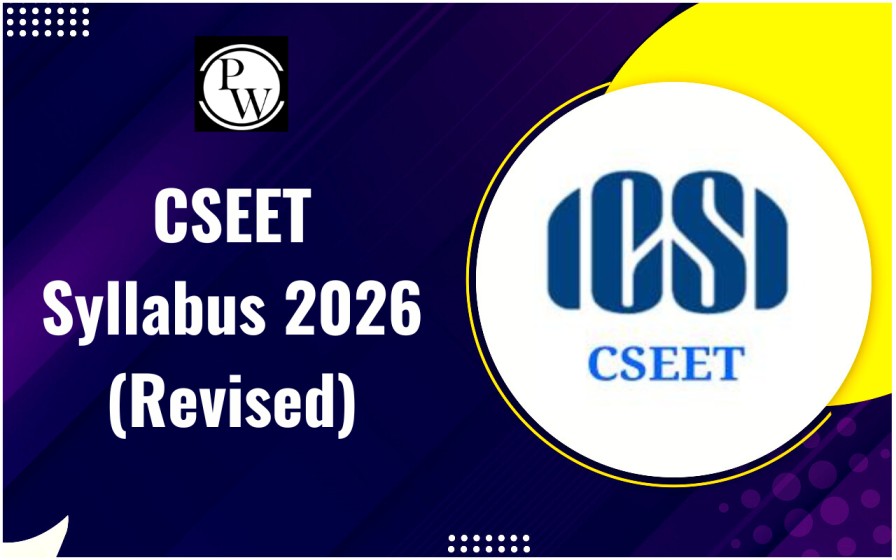
Collective Investment Schemes, often called "investment funds," "mutual funds," or simply "funds," gather money from multiple investors to purchase assets such as stocks, bonds, or cash. Funds come with different risk levels. Some are low-risk, investing mainly in money, while others are high-risk, investing in new companies or markets for potentially higher returns. This article will discuss the Collective Investment Schemes in detail.
Collective Investment Schemes Overview
A Collective Investment Scheme (CIS) is a method of investing where individuals collect their money together to invest in various assets, such as stocks, bonds, real estate, and other options. This approach allows investors to make a broader range of investment opportunities and minimizes the risk of significant loss from a single investment. Professional fund managers oversee these schemes, making investment decisions on behalf of the investors to optimize returns. Each investor in a CIS owns units or shares proportional to their investment amount, giving them a stake in the overall portfolio. In India, Collective Investment Schemes are overseen by the Securities and Exchange Board of India (SEBI). The regulations established in the SEBI (Collective Investment Schemes) Regulations 1999 and subsequent updates define the duties and obligations of all involved parties. These rules guarantee that these schemes are transparent and equitable for all participants.Collective Investment Schemes Examples
The various examples of CIS are mentioned below in detail:- Mutual Funds : These funds combine funds to purchase various stocks, bonds, and other assets, aiming to provide professional management and spread risk through diversification.
- Exchange-Traded Funds (ETFs): These function similarly to mutual funds but are traded on stock exchanges like individual stocks. They achieve diversification by following specific indices, sectors, commodities, or other asset groups.
- Hedge Funds : These funds use various strategies to generate high returns. They often invest in multiple assets, including stocks, bonds, currencies, and derivatives.
- Real Estate Investment Trusts (REITs) : REITs pool funds from investors to invest in income-generating real estate properties, such as commercial buildings, apartments, and shopping malls. They provide real estate market exposure without direct property ownership.
- Private Equity Funds : Private equity funds pool capital to invest in private companies or buy out public companies to take them private. They aim to enhance the value of their investments through active management and eventually sell them for a profit.
Collective Investment Schemes (CIS) Features
The various Features of the Collective Investment Scheme are described below in Detail:- Pooling of Funds : CIS allows many investors to combine their money, even if they individually have small amounts. This pooled money is then invested in various assets, enabling investors to access opportunities that might be out of reach individually.
- Professional Management : CIS investments are managed by professional fund managers. These experts analyze market trends, conduct extensive research, and select investments that align with the scheme’s goals, aiming to optimize returns for investors.
- Diversification : A key feature of CIS is its diversification. The scheme spreads risk by investing in asset classes, sectors, and geographic regions. This means that poor performance in one investment can be balanced by better performance in others, reducing overall risk.
- Ownership Through Units or Shares : Investors in a CIS own units or shares that reflect their proportional ownership in the scheme. The value of these units is tied to the performance of the fund’s underlying assets. Investors can buy or sell these units, providing liquidity and flexibility in managing their investments.
- Transparent Reporting : CIS provides regular reports to investors detailing the scheme's financial performance, holdings, and other important information. This transparency allows investors to monitor their investments and make informed decisions.
Collective Investment Schemes Participants
In India, the participants in a Collective Investment Scheme (CIS) include:- Sponsor : The sponsor proposes and sets up the CIS, ensuring regulatory compliance and appointing the AMC.
- Asset Management Company (AMC) : The company manages the CIS, makes investment decisions, and handles daily operations.
- Trustees : Custodians of the fund's assets, protect investors' interests and oversee the AMC.
- Custodian (Optional) : Safeguards the scheme's assets and ensures proper segregation.
- Investors : Individuals, institutions, and entities who invest in the CIS.
- Registrar and Transfer Agent (RTA) : Maintains investor records and processes unit transfers.
- Distributors/Intermediaries : Market and sell CIS units, assisting investors with the investment process.
Collective Investment Schemes(CIS) Eligibility Criteria
The eligibility criteria for a CIS can ensure its operations are aligned with regulatory standards, thereby protecting investors' interests and promoting confidence in the collective investment industry. The various eligibility norms include the following:- Promoter's Track Record : The promoter or sponsor of the CIS must have a sound track record and financial standing. This includes demonstrating a history of ethical and efficient business practices, stability, and integrity in financial dealings.
- Regulatory Compliance : The sponsor must ensure full compliance with all regulatory requirements set by SEBI. This includes submitting necessary documentation and meeting financial standards and legal frameworks governing the operation of CIS.
- Net Worth Requirement : The sponsor and the Asset Management Company (AMC) must meet specific net worth criteria as SEBI prescribes. This ensures that the entities involved have adequate financial resources to manage the scheme effectively and protect investors' interests.
- Independence of Trustees : Trustees appointed to oversee the CIS must be independent of the sponsor and the AMC. They should not have conflicting interests that could compromise their ability to protect investors' interests.
- Registration with SEBI : The AMC and the CIS must be registered. This registration process thoroughly evaluates the entities' compliance with SEBI regulations and standards. Registration ensures that the scheme operates within the legal and regulatory framework established for CIS.
- Transparency and Disclosure : The CIS must maintain high standards of transparency and disclosure. This includes providing regular reports to investors detailing the financial performance, portfolio holdings, and any significant changes in the scheme.
- Investment Strategy and Objectives : The CIS must clearly define its objectives. This includes outlining the types of assets it will invest in, the risk profile it will maintain, and the expected returns.
- Infrastructure and Resources : The AMC must have adequate infrastructure and resources to manage the CIS effectively. This includes having a competent team of professionals, technology systems, and sufficient operational capacity to handle the scheme's activities efficiently.
- Code of Conduct : All participants involved in the CIS, including the sponsor, AMC, trustees, and distributors, must follow the code of conduct prescribed by SEBI. This code includes ethical behaviour, transparency, and accountability in all dealings related to the scheme.
- Risk Management : The CIS must follow effective risk management practices to safeguard investors' interests. This includes having mechanisms to identify, assess, and mitigate various risks associated with the scheme's investments.
Collective Investment Schemes FAQ
What is the minimum duration of the collective investment scheme?
The minimum duration of the collective investment scheme is five years.
Is the collective Investment scheme a regulated Activity?
Operating a CIS is regulated and requires authorization from the Financial Conduct Authority.
What is the other name given to Collective Investment Schemes?
A pooled fund is the name given to the collective investment scheme.
Who controls chit funds?
The state Government governs chit funds under the Chit Funds Act of 1982.
🔥 Trending Blogs
Talk to a counsellorHave doubts? Our support team will be happy to assist you!

Check out these Related Articles
Free Learning Resources
PW Books
Notes (Class 10-12)
PW Study Materials
Notes (Class 6-9)
Ncert Solutions
Govt Exams
Class 6th to 12th Online Courses
Govt Job Exams Courses
UPSC Coaching
Defence Exam Coaching
Gate Exam Coaching
Other Exams
Know about Physics Wallah
Physics Wallah is an Indian edtech platform that provides accessible & comprehensive learning experiences to students from Class 6th to postgraduate level. We also provide extensive NCERT solutions, sample paper, NEET, JEE Mains, BITSAT previous year papers & more such resources to students. Physics Wallah also caters to over 3.5 million registered students and over 78 lakh+ Youtube subscribers with 4.8 rating on its app.
We Stand Out because
We provide students with intensive courses with India’s qualified & experienced faculties & mentors. PW strives to make the learning experience comprehensive and accessible for students of all sections of society. We believe in empowering every single student who couldn't dream of a good career in engineering and medical field earlier.
Our Key Focus Areas
Physics Wallah's main focus is to make the learning experience as economical as possible for all students. With our affordable courses like Lakshya, Udaan and Arjuna and many others, we have been able to provide a platform for lakhs of aspirants. From providing Chemistry, Maths, Physics formula to giving e-books of eminent authors like RD Sharma, RS Aggarwal and Lakhmir Singh, PW focuses on every single student's need for preparation.
What Makes Us Different
Physics Wallah strives to develop a comprehensive pedagogical structure for students, where they get a state-of-the-art learning experience with study material and resources. Apart from catering students preparing for JEE Mains and NEET, PW also provides study material for each state board like Uttar Pradesh, Bihar, and others
Copyright © 2026 Physicswallah Limited All rights reserved.









